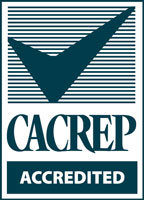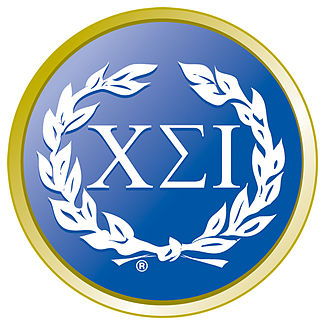Counselor Education Student and Professional Organizations
On this page, we have provided you with links that may be helpful in your time as a student in the Counselor Education programs.
CACREP (Council for the Accreditation of Counseling and Related Educational Programs)
CACREP is the accrediting body for the Counseling programs at Texas Tech University.
CACREP Standards are meant to ensure that students graduate their programs with a professional counselor identity and the ability to demonstrate both knowledge and skill in the content areas. CACREP has eight required core content areas: Professional Counseling Orientation and Ethical Practice; Social and Cultural Diversity; Human Growth and Development; Career Development; Counseling and Helping Relationships; Group Counseling and Group Work; Assessment and Testing; and Research and Evaluation.
You can find more information about CACREP by visiting their website at cacrep.org.
- 2013 CACREP Vital Statistics Survey
- 2014 CACREP Vital Statistics Survey
- 2015 CACREP Vital Statistics Survey
- 2016 CACREP Vital Statistics Survey
- 2017 CACREP Vital Statistics Survey
- 2018 CACREP Vital Statistics Survey

Chi Sigma Iota
Chi Sigma Iota is the international counseling honorary organization. The Texas Tech chapter is Theta Theta Upsilon.
Membership is by chapter invitation to both students and graduates of the chapters' counselor education programs. Students must have completed at least one semester of full-time graduate coursework in a counselor education degree program, have earned a grade point average of 3.5 or better on a 4.0 system, and be recommended for membership by the chapter.
You may find more information about Chi Sigma Iota at csi-net.org

Professional Organizations
American Counseling Association (ACA)
ACA is the world's largest association of professional counselors with more than 55,000 members. Student membership is $95, and it allows you access to all the professional resources available through ACA. Liability insurance coverage is a part of your membership. To be eligible for Student Membership, you must be a master's or doctoral level student enrolled at least half-time in a college/university program.
For more information about ACA, visit their website: counseling.org.
Within the American Counseling Association there are 20 divisions. These divisions enhance professional identity and are organized around specific interest and practice areas. The divisions provide professional strength and satisfy the diverse needs of the counseling community.
Association for Adult Development and Aging (AADA)
Chartered in 1986, AADA serves as a focal point for information sharing, professional
development, and advocacy related to adult development and aging issues; addresses
counseling concerns across the lifespan.
Association for Assessment and Research in Counseling (AARC)
Originally the Association for Measurement and Evaluation in Guidance, AARC was chartered
in 1965. The purpose of AARC is to promote the effective use of assessment in the
counseling profession.
Association for Child and Adolescent Counseling (ACAC) Association for Child and Adolescent Counseling aims to focus on the training needs of counselors who work with children and adolescents, while also providing professional support to those counselors, whether they are school counselors, play therapists, or counselor educators.
Association for Creativity in Counseling (ACC)
The Association for Creativity in Counseling (ACC) is a forum for counselors, counselor
educators, creative arts therapists and counselors in training to explore unique and
diverse approaches to counseling. ACC's goal is to promote greater awareness, advocacy,
and understanding of diverse and creative approaches to counseling.
American College Counseling Association (ACCA)
ACCA is one of the newest divisions of the American Counseling Association. Chartered
in 1991, the focus of ACCA is to foster student development in colleges, universities,
and community colleges.
Association for Counselors and Educators in Government (ACEG)
Originally the Military Educators and Counselors Association, ACEG was chartered in
1984. ACEG is dedicated to counseling clients and their families in local, state,
and federal government or in military-related agencies.
Association for Counselor Education and Supervision (ACES)
Originally the National Association of Guidance and Counselor Trainers, ACES was a
founding association of ACA in 1952. ACES emphasizes the need for quality education
and supervision of counselors for all work settings.
The Association for Humanistic Counseling (AHC)
AHC, formerly C-AHEAD, a founding association of ACA in 1952, provides a forum for
the exchange of information about humanistically-oriented counseling practices and
promotes changes that reflect the growing body of knowledge about humanistic principles
applied to human development and potential.
Association for Lesbian, Gay, Bisexual and Transgender Issues in Counseling (ALGBTIC)
Educates counselors to the unique needs of client identity development; and a non-threatening
counseling environment by aiding in the reduction of stereotypical thinking and homoprejudice.
American Mental Health Counselors Association (AMHCA)
Chartered in 1978, AMHCA represents mental health counselors, advocating for client-access
to quality services within the health care industry.
American Rehabilitation Counseling Association (ARCA)
ARCA is an organization of rehabilitation counseling practitioners, educators, and
students who are concerned with enhancing the development of people with disabilities
throughout their life span and in promoting excellence in the rehabilitation counseling
profession's practice, research, consultation, and professional development.
American School Counselor Association (ASCA)
Chartered in 1953, ASCA promotes school counseling professionals and interest in activities
that affect the personal, educational, and career development of students. ASCA members
also work with parents, educators, and community members to provide a positive learning
environment.
Association for Spiritual, Ethical, and Religious Values in Counseling (ASERVIC)
Originally the National Catholic Guidance Conference, ASERVIC was chartered in 1974.
ASERVIC is devoted to professionals who believe that spiritual, ethical, religious,
and other human values are essential to the full development of the person and to
the discipline of counseling.
Association for Specialists in Group Work (ASGW)
Chartered in 1973, ASGW provides professional leadership in the field of group work,
establishes standards for professional training, and supports research and the dissemination
of knowledge.
Counselors for Social Justice (CSJ)
CSJ is a community of counselors, counselor educators, graduate students, and school
and community leaders who seek an end to oppression and injustice affecting clients,
students, counselors, families, communities, schools, workplaces, governments, and
other social and institutional systems.
International Association of Addictions and Offender Counselors (IAAOC)
Originally the Public Offender Counselor Association, IAAOC was chartered in 1972.
Members of IAAOC advocate the development of effective counseling and rehabilitation
programs for people with substance abuse problems, other addictions, and adult and/or
juvenile public offenders.
International Association of Marriage and Family Counselors (IAMFC)
Chartered in 1989, IAMFC members help develop healthy family systems through prevention,
education, and therapy.
National Career Development Association (NCDA)
Originally the National Vocational Guidance Association, NCDA was one of the founding
associations of ACA in 1952. NCDA inspires and empowers the achievement of career
and life goals by providing professional development, resources, standards, scientific
research, and advocacy.
National Employment Counseling Association (NECA)
NECA was originally the National Employment Counselors Association and was chartered
in 1966. The commitment of NECA is to offer professional leadership to people who
counsel in employment and/or career development settings.
Texas Counseling Association (TCA)
TCA is the association for counselors living and working in Texas. TCA advocates for counselors with the state legislature and has liaisons to the state licensure boards. TCA promotes professional growth and support. Student memberships are available for $55.
For more information, visit their website: www.txca.org.
Licensure and Certification Information
Counselor-License
This website provides information about counselor licensure requirements in each state.
Texas State Board of Examiners of Professional Counselors
This is the site of the board that licenses and regulates Licensed Professional Counselors (LPCs) in Texas. Here you will find information on license requirements, how to file a complaint, HIPAA, and other important topics related to LPCs. For more information, visit dshs.state.tx.us/counselor.
Texas Education Agency (TEA)
Information regarding certification as a school counselor is available on their website.
Counselor Education
-
Address
Texas Tech University, College of Education, 3002 18th Street Lubbock, TX 79409 -
Phone
(806) 742-2377 -
Email
educ.webmaster@ttu.edu
